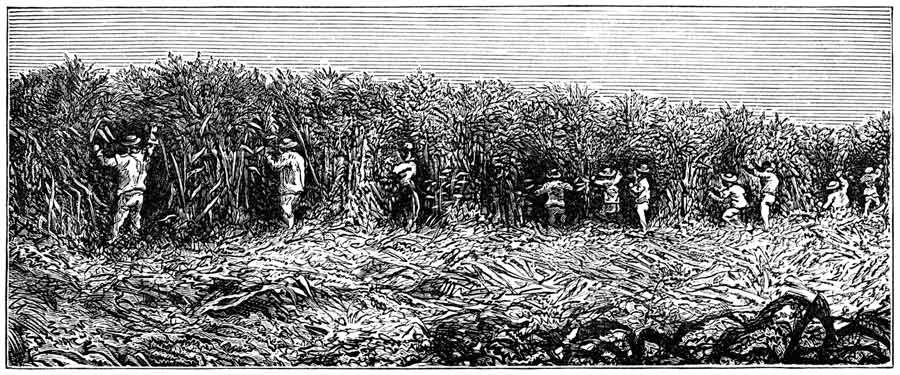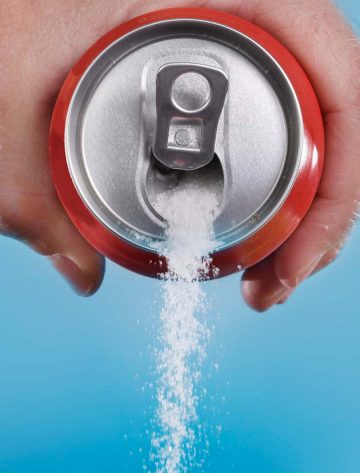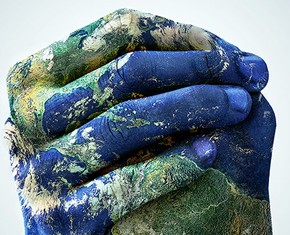The views expressed in our content reflect individual perspectives and do not represent the authoritative views of the Baha'i Faith.
Are you physically fit? If you said yes, you likely exercise on a regular basis and maintain a conscientious understanding of what goes into your body.
If, on the other hand you responded no, take heart—for you are joined in a battle over 300 years in the fighting. This may surprise you, but the history of slavery and racism can provide some penetrating insights into the forces arrayed against your well-being.
Quick: name a phenomenon that is sweet, all-pervasive and not very good for you. If you said sugar, you may appreciate that “white gold” was the principle driver in the emergence of the Atlantic slave trade.
For centuries sugar was sweet, lucrative and incredibly difficult to manufacture at scale. Everything about the process–planting, weeding, harvesting, milling and refining—required back-breaking and brutal labor. Indeed, sugar was so difficult to produce that an entire way of life–the slave plantation–was conceived to make it possible.
The deeds done in service to the profits of sugar are too reprehensible and cruel to recall much less recount here. Suffice it to say greed made men monsters and beasts of burden in ways that quite literally constrained and devoured whole populations of indigenous Americans and imported Africans. The 18th century abolitionist William Fox is credited with the phrase that summarizes the abominable process best, “for every pound of sugar, we may be considered as consuming two ounces of human flesh.”

From the beginning of the 16th to the middle of 19th centuries some 12 million Africans were imported from Africa to the Caribbean and the Americas to grow and manufacture sugar. The process started in the early 1500s and culminated in the 1700s. As the profits grew, agricultural interests extended their tentacles to all aspects of Western civilization, fabricating a philosophy of white supremacy to justify the appalling tyranny of slavery and its attendant atrocities.
Consider this 1836 excerpt from The South Vindicated from the Treason and Fanaticism of the Northern Abolitionists:
Personal observation must convince every candid man, that the negro is constitutionally indolent, voluptuous, prone to vice; that his mind is heavy, dull and unambitious, and that the doom that has made the African in all ages and countries a slave–is the natural consequence of the inferiority of his character.
This excerpt, citing historian Eric Williams, sums up the dynamic:
“Slavery was not born of racism; rather, racism was the consequence of slavery.” Africans, in other words, were not enslaved because they were seen as inferior; they were seen as inferior to justify the enslavement required for the prosperity of the early sugar trade.” – Sugar, National Geographic, August 2013.
This long history of slavery and its hideous offspring racism still affects us today. The Guardian of the Baha’i Faith understood both the genesis and pernicious impact of the malady, writing in 1936:
As to racial prejudice, the corrosion of which, for well-nigh a century, has bitten into the fiber, and attacked the whole social structure of American society, it should be regarded as constituting the most vital and challenging issue … – Shoghi Effendi, The Advent of Divine Justice, p. 33.
Would you like to measure the impact of that “most vital and challenging issue?” Ask yourself this question: How frequently do you have wholesome, loving discourse with African Americans in your home? If you responded with anything more than quarterly; you are quite likely involved in a multiracial community of high-minded individuals. If you do not have regular healthy meaningful interactions with African-Americans in your home, you may want to revisit your understanding of racism.
You see, racism—very much like sugar—is insidious, all-pervasive and inimical to human well-being.
 Think about the many ways sugar asserts its influence in your life. It has gone from a prized, tiny accompaniment with tea, to the indefensible staple present in everything you eat, from bread to breakfast cereal. In 1700, for example, the average Englishman consumed 4 pounds of sugar per year. In 2014, the USDA estimated that the average American consumed between 150-170 pounds per year. The result is a startling increase in chronic debilitating diseases, directly attributable to the alarming increase in our consumption of sugar.
Think about the many ways sugar asserts its influence in your life. It has gone from a prized, tiny accompaniment with tea, to the indefensible staple present in everything you eat, from bread to breakfast cereal. In 1700, for example, the average Englishman consumed 4 pounds of sugar per year. In 2014, the USDA estimated that the average American consumed between 150-170 pounds per year. The result is a startling increase in chronic debilitating diseases, directly attributable to the alarming increase in our consumption of sugar.
Slavery was formally abolished on December 6, 1865 when congress passed the 13th Amendment to the United States’ constitution. This was an extraordinary setback to the monied interests that had profited from over 300 years of plantation slave labor. However, those interests rallied and reasserted themselves, using racism as their mechanism to drive another century of exploitative measures from sharecropping to Jim Crow—all designed to constrain and exploit African-Americans for the benefit of white Americans.
As a result of that brutal history, many people of color may say whites are the enemy—but this would not be accurate. It is the thoughts that exalt one race over another that drives the problem. Make no mistake, skin color matters, but only insofar as it has been made to matter for gaining advantage over others. It is not and will never be a determinant of intrinsic worth or productive capacity in this world or the next:
Inasmuch as all were created in the image of God, we must bring ourselves to realize that all embody divine possibilities. In the estimation of God all men are equal. There is no distinction or preference for any soul, in the realm of His justice and equity. God did not make these divisions, these divisions have had their origin in man himself. Therefore, as they are against the plan and purpose of God they are false and imaginary. In the estimation of God, there is no distinction of color; all are one in the color and beauty of servitude to Him. – Abdu’l-Baha, quoted by Shoghi Effendi, Ibid., p. 39.
Still, though, the greed that tempts people to discount and dehumanize people of African descent runs riot. In this regard, the Baha’i teachings offer copious and trenchant guidelines for meeting the tide of racism head on:
Let the white make a supreme effort in their resolve to contribute their share to the solution of this problem, to abandon once for all their usually inherent and at times subconscious sense of superiority, to correct their tendency towards revealing a patronizing attitude towards the members of the other race, to persuade them through their intimate, spontaneous and informal association with them of the genuineness of their friendship and the sincerity of their intentions, and to master their impatience of any lack of responsiveness on the part of a people who have received, for so long a period, such grievous and slow-healing wounds. – Ibid., p. 40.
These guidelines for racial healing, however right and useful, must be practiced daily—just like a serious diet, day in and day out. Overcoming the ubiquitous manifestation of racism, like giving up sugar, requires mature vigilance and constant effort. The next article in this series explores the significant milestones in the evolution of human consciousness, and our emerging capacity to realize the oneness of humanity.
You May Also Like
Comments

















Great article! Thanks.
of words really got to the heart of
things!